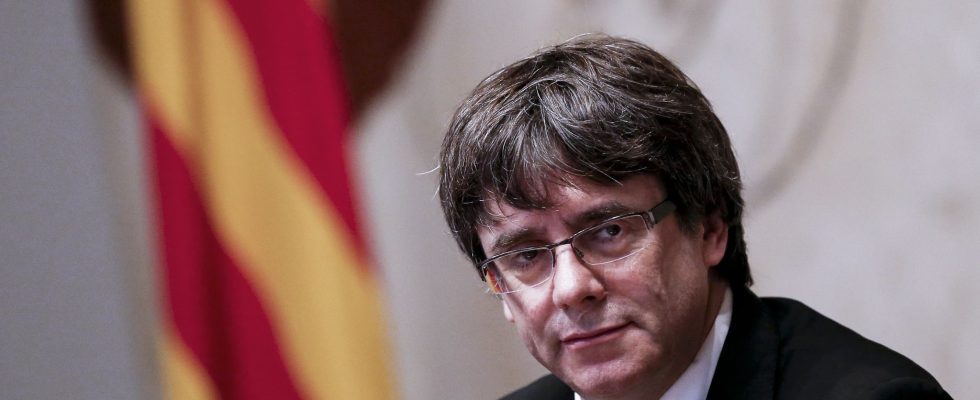Carles Puigdemont is having fun. From Belgium, where he is exiled, the Catalan separatist ironically comments on the political crisis that is paralyzing Spain: “One day, you are decisive in forming a government. The next day, Madrid orders your arrest”, he writes on Twitter.
The analysis is not completely wrong. At 60, Carles Puigdemont is being prosecuted for having tried to declare the independence of Catalonia in 2017. The Spanish prosecutor’s office has asked to reactivate the arrest warrant against him on July 24, after the recent rejection of his appeal by European justice. And this while the separatist plays a key role in the resolution of the political crisis that Spain is going through.
The country is looking for a way out after the July 23 legislative elections. For the moment, neither the right nor the left have managed to secure a majority. The current Prime Minister, Pedro Sánchez, therefore remains at the head of a socialist interim government until a party is able to form a coalition. Against all expectations, it is the 7 deputies of Junts per Catalunya (JxCat), the formation of Carles Puigdemont, who could make the difference…
No majority
However, Sunday’s legislative elections have clearly designated a winner: the conservative Alberto Núñez Feijóo, who leads the Popular Party (PP). He won 136 of the 350 seats in Congress. However, even with the support of 33 deputies from the far-right Vox party, he did not reach an absolute majority of 176 deputies.
Alberto Núñez Feijóo demanded the right to rule in a minority – which he was not granted. He has also started discussing with several formations, but his attempts seem doomed to failure, as Vox is a scarecrow for the other parties. The Basque nationalists of the PNV have already indicated that they do not wish to negotiate with the PP.
Even though it won fewer seats (122 deputies), Pedro Sánchez’s Socialist Party (PSOE) therefore appears to be in a better position to form a government. It is already allied with the radical left of Sumar (31 seats) and seems more likely to obtain the support of the Basque and Galician parties, which regularly support them in Parliament. But to be renewed, the PSOE must ensure the abstention of JxCat, which has been systematically opposed to its reforms for several years.
Considerations
The JxCat party is aware of having a decisive role. As of Sunday evening, its leaders hinted that they would not allow Pedro Sánchez to be reappointed without compensation. “Our priority is Catalonia, not the fact that Spain has a government. We will not move an inch,” assured Miriam Nogueras, JxCat leader for the legislative elections.
The Junts’ demands have been the same for years: a referendum on self-determination in Catalonia, and amnesty for separatists still being prosecuted by the courts, such as Carles Puigdemont. But while Pedro Sánchez has pardoned several Junts figures in 2021, analysts believe he is unlikely to give in to both claims. There remains, however, another option to change the situation. The counting of ballots for Spaniards abroad will begin on Friday, and could tip seats to one side or the other.
